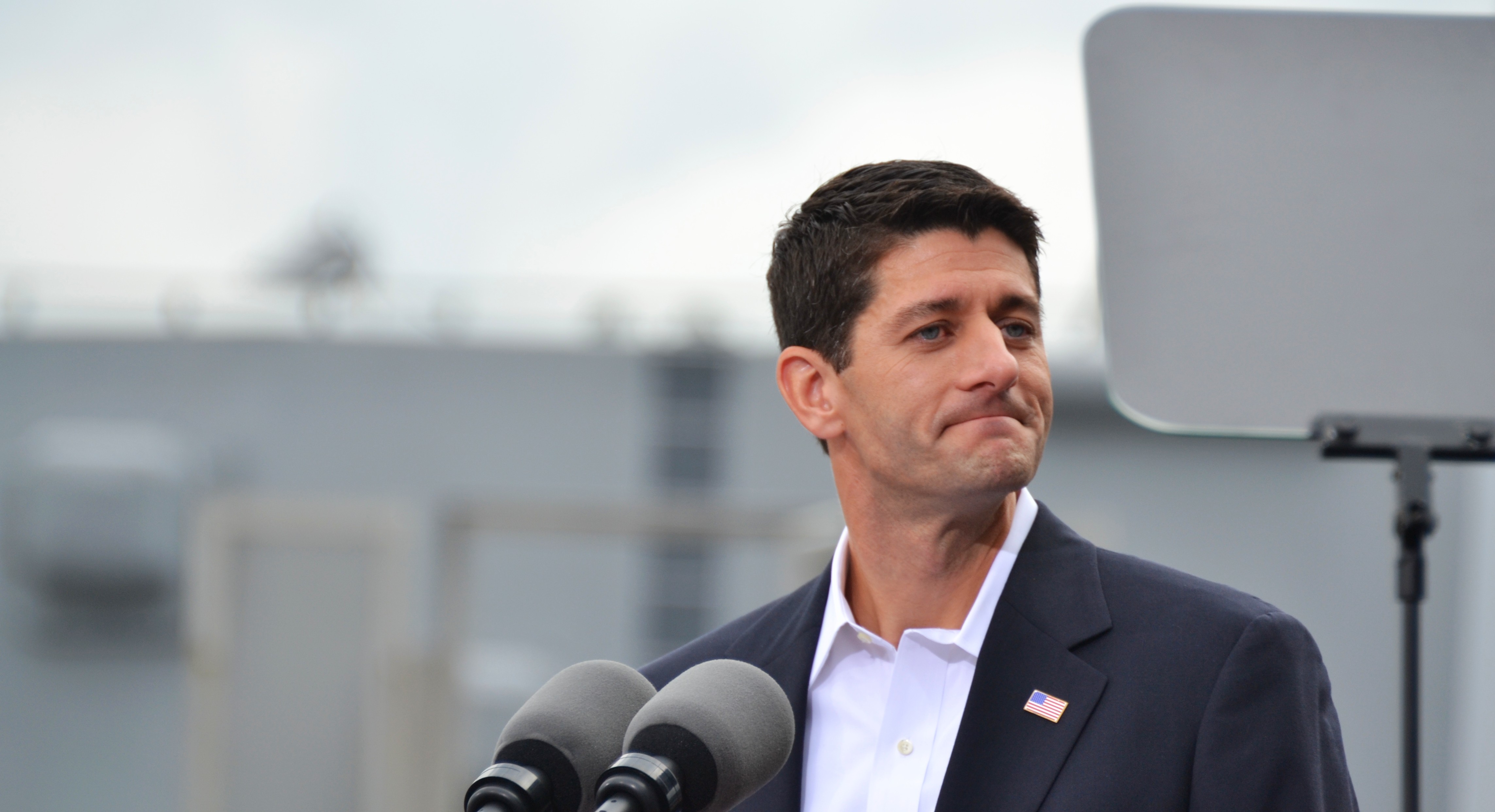I’d like to take a moment to examine one of the most interesting (to me at least) political figures to appear in awhile: Wisconsin Congressman Paul Ryan (R). This man fascinates me because he seems to have played his hand exactly right at basically every turn since he entered public life. He also makes for a success story that I worry will become ever more rare: a working-class kid who made his way up through the policy ranks. With many policy jobs being held by unpaid interns, how many more Paul Ryans will there be?
Ryan has lived pretty much every sophomore poli-sci major’s dream life since he graduated from Miami University of Ohio – he has been a congressional staffer, a think tank staffer, a US Congressman, before rising through the ranks and becoming chairman of the budget committee. He became a prominent figure for a budget, (for a policy proposal!) and was a major party nominee for vice president. At some point in that career he married into wealth (his wife is worth around $4 million). He has not held a private-sector job since graduating college, yet he maintains working-class cred for being from the little town of Janesville, WI. He does seem to really love this hometown.
I find it fascinating that his budget made such a big splash, even though most experts considered it hogwash. He executed an amazing triumph of style over substance. Simply by seeming reasonable and having a plan (even a silly one), everyone took him seriously. He was the Reasonable Republican, though being sane next to Herman Cain and Todd Akin was a cakewalk.
I guess we have to talk a little about Ryan’s 2016 prospects here, and I think that’s a tough call to make. On the one hand, I worked for my former senator, John Edwards (D-NC). It may be hard to remember now, given where Sen. Edwards’ personal life went, but Sen. Edwards was once considered a frontrunner for the Democratic nomination and a serious policy person. He even beat Hillary Clinton in the ’08 Iowa caucuses. I can tell you that simply being on the losing VP ticket does not make everything line up for you. On the ground in NH, when we started, Sen. Edwards’ name recognition was around 15% – even after being the VP nominee in ’04. Sen. Edwards lost to a newcomer named Barack Obama in the ’08 primary. Also, for Mr. Ryan, the last person to make the jump from the House to the White House was an Illinois lawyer named Abe Lincoln. Big shoes to fill.
Even if he never makes a bid for the White House, Rep. Ryan made an amazing trip from Janesville to the heights of influence. It should be asked: Is his career path still possible today? Could a person like Paul Ryan, a man not from wealth, follow this path, or would he be unable to afford to do unpaid internships after graduation? Rep. Ryan did do one summer internship, with Sen. Bob Kasten of Wisconsin. The internship led to a job after he graduated.
Will our generation have far fewer Paul Ryan stories? Washingtonian Magazine recently ran a piece called “The Age of the Permanent Intern” about how many unpaid or barely-paid young policy wonks go from internship to internship to try to get a foothold on the Washington job market. According to the article “in 2012, half of the (DC Area) employers had not hired an intern in the past 6 months.” In the current job internship environment, the senator would likely not immediately hire young Paul Ryan.
Even if I agree with him about very little, I respect that Rep. Ryan represents a piece of the American dream. He wanted to go to work for his country in Washington, doing what he believes to be best for the nation. He, like most people, did not have a ton of financial resources behind him to be able to work for free during summers and a year after college. From this we get his stories about driving the Weinermobile.
I worry that the internship culture prices young Paul Ryans out of the market, and that aspiring policy people from Janesville and all over the country cannot afford to take a chance in Washington. Then I worry that our nation cannot afford to have all of the ideas possible up for discussion. The diversity of upbringing and culture that makes our nation great must be reflected in the halls of power.
